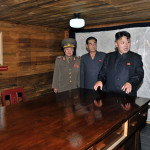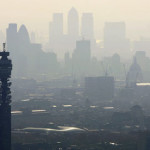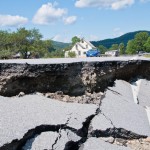- AUSTRAL PEACE AND SECURITY: Peace hopes rise for West Papua
- DETERRENCE: Pentagon Conducts Overhaul of War Plans
- DPRK: Asian leaders discuss unease over North Korea
- ENERGY SECURITY: Europe Must Tackle Air Pollution, Warn UN Scientists
- GOVERNANCE AND CIVIL SOCIETY: Video game pits China against Japan over island dispute
- CLIMATE CHANGE ADAPTATION: Climate change adaptation and the rental sector
 AUSTRAL PEACE AND SECURITY: Peace hopes rise for West Papua, Rowan Callick, The Australian (6 August 2013)
AUSTRAL PEACE AND SECURITY: Peace hopes rise for West Papua, Rowan Callick, The Australian (6 August 2013)
Aiming at defusing one of the most intractable rows in the Asia-Pacific, Papua-New Guinea Prime Minister Peter O’Neill met Indonesian President Yudhoyono to end the standoff over West Papua, and cooperate in building the economy of the New Guinea island. He said he was convinced Dr Yudhoyono wished “to withdraw the military presence from West Papua.” One goal was to prevent any resurgence of asylum-seekers from the Indonesian side of the border, with 8000 remaining in PNG.
- Fifty years on, Australia’s Papua policy is still failing, Richard Chauvel, Inside Story (27 September 2012)
- Rudd given G20 Indon spy report, Philip Dorling, The Age (26 July 2013)
- The US–Vietnam Comprehensive Partnership: what’s in a name?, Carlyle A. Thayer, The Strategist, ASPI blog (31 July 2013)
 DETERRENCE: Pentagon Conducts Overhaul of War Plans, U.S. military revamps plans for potential conflicts from the Middle East to the Pacific, J. Barnes, Wall Street Journal, (2 August 2013) p. 5
DETERRENCE: Pentagon Conducts Overhaul of War Plans, U.S. military revamps plans for potential conflicts from the Middle East to the Pacific, J. Barnes, Wall Street Journal, (2 August 2013) p. 5
The US military is overhauling Pacific war plans to adapt to falling numbers of ground troops. The military is planning to rely more on cyberweapons, quick-reaction ground units, air power, and warships. It still plans major ground reinforcements for the Republic of Korea.
- Soldiers Go Global, New deployment model ties 60,000 to new missions, Lance M. Bacon, Army Times, (10 June 2013) p. 16
- Rebalancing The Military In Asia And The Pacific, Michael O’Hanlon, Politico.com, (9 June 2013)
- America’s turn: new wars, special forces, Paul Rogers, Open Democracy, (16 May 2013)
 DPRK: Asian leaders discuss unease over North Korea, Global Security Newswire, (6 August 2013) [Chinese language]
DPRK: Asian leaders discuss unease over North Korea, Global Security Newswire, (6 August 2013) [Chinese language]
North Korea remains relatively normal and has now sustained an effort to reach out to the international community for several months. Although in the case of the Kaesong Industrial Complex, certainly South Korea would assess North Korea as too quiet. China’s ties with North Korea remain broad and lack an overtly military character. China’s training vessel, ZHENG HE, called in Chinhae, South Korea.
- Rolling reforms: reflections on visits to Kim Jong-un’s North Korea, Rudiger Frank, Global Asia (June 2013)
- Iranian President, North Korean top official underline broadening of ties, Fars news agency (4 August 2013)
- Chinese naval training vessel Zheng He visits S. Korea. English People’s Daily Online, Yan Meng, Yao Chun, editors. (5 August 2013)
 ENERGY SECURITY: Europe Must Tackle Air Pollution, Warn UN Scientists, Euractiv.com, (5 July 2013)
ENERGY SECURITY: Europe Must Tackle Air Pollution, Warn UN Scientists, Euractiv.com, (5 July 2013)
Pollution is not just a matter of emissions but of concentrations, exposures, and biochemistry; depending on the source and the distance, it is also a matter of geo-bio-chemistry and the food chains as well. This simple truth is blithely ignored by those who demonize CO2 and its fossil fuel origins, irrespective of processes and co-emissions, and relative priority according to known impacts. Particulates and ozone account for a far larger burden of disease. CO2 by itself is not a health pollutant as such, and the US Supreme Court findings to the contrary are being challenged.
- Trade-offs: What’s good for the climate may not be good for the air, Euractiv.Com (6 June 2013)
- Air pollution ‘kills more than 2 million people every year’ Press Association, Guardian (UK) (12 July 2013)
- Summary of petitions asking Supreme Court to review EPA’s greenhouse gas rules, Mike Gilbert, blog at Washingtonpropertylawyer.com (8 June 2013)
 GOVERNANCE AND CIVIL SOCIETY: Video game pits China against Japan over island dispute, BBC, (1 August 2013)
GOVERNANCE AND CIVIL SOCIETY: Video game pits China against Japan over island dispute, BBC, (1 August 2013)
Users assist the PRC armed forces to defend the Senkaku (Diaoyu) Islands against Japan in a new video game. Japan PM Abe may not visit Yasukuni Shrine this month in an effort to improve relations with China. Japan-ROK relations remain strained, with the ROK government protesting a government-sponsored poll regarding the Dokdo (Takeshima) Islets and Japan protesting a banner hung at a soccer match between the two countries.
- In overture to China, Japan PM may skip visit to war dead shrine, Linda Sieg, Reuters (2 August 2013)
- Seoul-Tokyo relations set to dip as Japan releases results of Dokdo opinion poll, Park Byung-su and Jeong Nam-gu, Hankyoreh (3 August 2013)
- Banner controversy sparks S. Korea-Japan history rows, AFP (30 July 2013)
 CLIMATE CHANGE ADAPTATION: Climate change adaptation and the rental sector, Lesley Instone, Kathleen Mee, Jane Palmer, Miriam Williams, and Nicola Vaughan, The University of Newcastle Australia and the National Climate Change Adaptation Research Facility – NCCARF (2013) [1.23 MB, PDF]
CLIMATE CHANGE ADAPTATION: Climate change adaptation and the rental sector, Lesley Instone, Kathleen Mee, Jane Palmer, Miriam Williams, and Nicola Vaughan, The University of Newcastle Australia and the National Climate Change Adaptation Research Facility – NCCARF (2013) [1.23 MB, PDF]
Housing tenants, especially low-income tenants, are often forgotten when it comes to strategies that seek to lessen the impact of climate change on households. Rental housing, comprises 27% of housing in Australia, is currently poorly adapted to climate change, incorporates the lowest quality housing (which is over represented by low-income earners) and is the most vulnerable to climate change.
- Urban regeneration for sustainable development: The role of sustainable housing? Nessa Winston, European Planning Studies, vol. 17, no. 12, pp. 1781-1796 (2009)
- How to make housing sustainable? The Dutch experience, Hugo Priemus, Environment and Planning B: Planning and Design, vol. 32, pp. 5-19 (2005)
The Nautilus Peace and Security Weekly Report presents articles and full length reports each week in six categories: Austral security, nuclear deterrence, energy security, climate change and security, the DPRK, climate change adaptation and governance and civil society. Our team of contributors carefully select items that highlight the links between these themes and the three regions in which our offices are found—North America, Northeast Asia, and the Austral-Asia region.
Subscribe to NAPSNet to receive free weekly email reports
Editor
- Saegan Swanson (while Arabella Imhoff is on leave)
Contributors
- Deterrence: Peter Hayes
- Governance and Civil Society: Dyana Mardon
- Climate Change Adaptation: Saleem Janjua
- DPRK: Roger Cavazos
- Energy Security: Nikhil Desai
- Austral Peace and Security: Richard Tanter

